Search
Summary 
Loading AI-generated summary based on World History Encyclopedia articles ...
Search Results
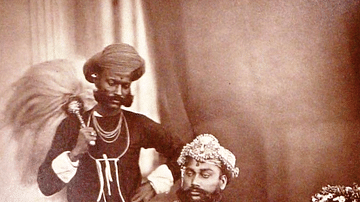
Image
Maharaja Holkar of Indore
A photograph taken in 1877 by Samuel Bourne of Tukojirao II (r. 1884-1886), Maharaja Holkar of Indore, one of the Indian princely states.

Image
Maharaja Bhupendra Singh
A colourised 1911 photograph of Maharaja Bhupendra Singh of Patiala (r. 1900-1938), one of the Indian princely states.
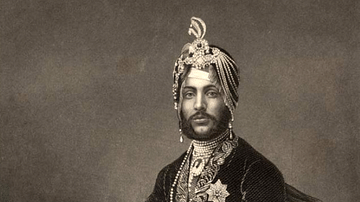
Image
Maharaja Duleep Singh
A painting based on a photograph of the 1850s showing Maharaja Duleep Singh (l. 1838-1893), last ruler of the Sikh empire who was deposed following the Anglo-Sikh Wars (1845-49). (National Portrait Gallery, London)

Definition
Indian Princely States
The Indian Princely states (aka Native States or Princely India) were those states in the Indian subcontinent the British did not conquer but which were typically bound by treaty first to the East India Company and then to the British Crown...
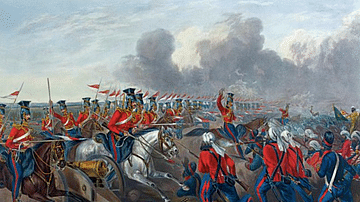
Definition
First Anglo-Sikh War
The First Anglo-Sikh War (1845-6) was a short and bloody conflict won by the British East India Company (EIC) against the Sikh Empire. The EIC was keen to expand into northern India, but the Sikh army was a well-trained, well-equipped, and...
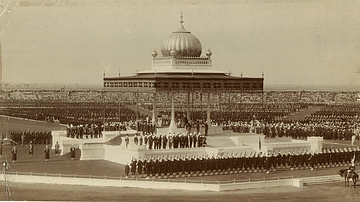
Definition
Delhi Durbar
The Delhi Durbar was a spectacular public event held in India to commemorate the accession of a new British monarch to the title Empress or Emperor of India. Three Delhi Durbars were held: 1877, 1903, and 1911. The event involved military...
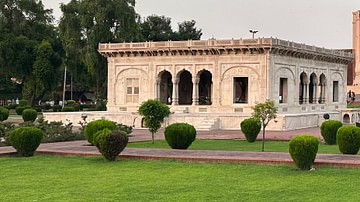
Image
Baradari
Hazuri Bagh Baradari (formerly known as Ranjit Singh's Baradari), built by Sikh ruler Maharaja Ranjit Singh in 1818, in Lahore, Pakistan. In Urdu, bara means "twelve," and dar means "door." Thus, baradari is the name given to a building...
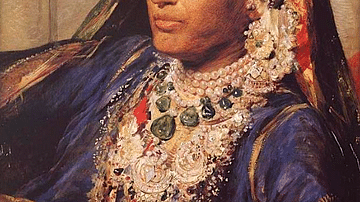
Image
Maharani Jind Kaur
An 1863 portrait of Maharani Jind Kaur who, from 1843, ruled as regent for her infant son Duleep Singh (l. 1838-1893), the last Maharaja of the Sikh Empire which was dissolved after the Anglo-Sikh Wars (1846-9) with the Brtish East India...
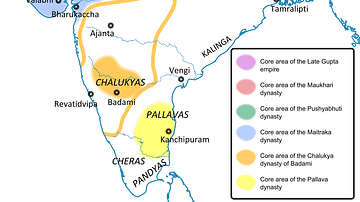
Definition
Maukhari Dynasty
The Maukharis (554 CE - 606 CE) rose as a power after the downfall of the Gupta Empire (3rd to 6th century CE) in the 6th century CE in northern India. The core area of their kingdom was situated in what is now the state of Uttar Pradesh...
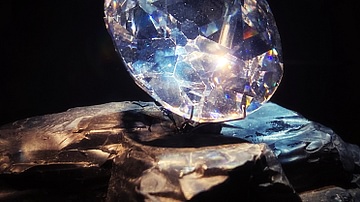
Definition
Koh-i-Noor
The Koh-i-Noor diamond (also Koh-i-Nur or Kūh-e Nūr) is one of the largest and most famous cut diamonds in the world. It was most likely found in southern India between 1100 and 1300. The name of the stone is Persian meaning ‘Mountain of...